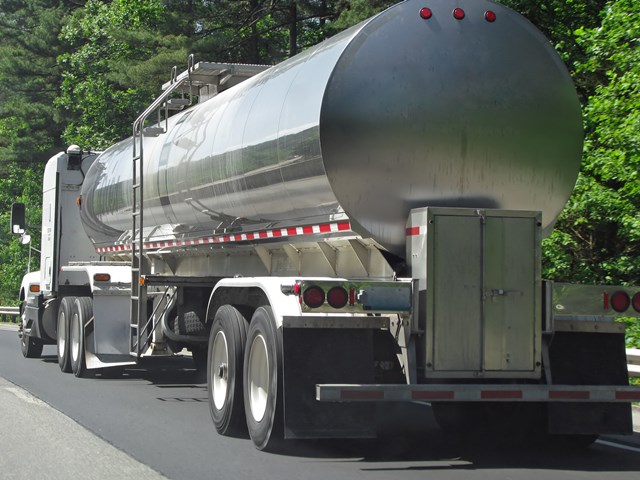WASHINGTON — The Pipeline and Hazardous Materials Safety Administration (PHMSA) has issued a ruling that says California’s meal and rest break requirements are pre-empted for all operators of motor vehicles transporting hazardous materials.
The ruling is the result of a petition submitted by the National Tank Truck Carriers Association (NTTC), which had applied to PHMSA for a determination as to whether the Federal Hazardous Material Transportation Law preempted California’s meal and rest break requirements, as applied to the transportation of hazardous materials.
California’s meal and rest break law is considered by many in the trucking industry as being inconsistent — and some consider in conflict — with federal regulations.
The trucking industry is currently asking Congress to pass legislation that would prohibit states from having their own meal and rest break laws, or for that matter, any commercial motor vehicle regulation deemed to be contradictory to federal regulations.
PHMSA granted the petition to “ensure public safety, maintain security and reduce delays.”
Under California law, an employer is required to provide employees a 30-minute meal break during a work period longer than five hours with some exceptions. Further, an employer is required to provide a second 30-minute meal break if an employee works more than 10 hours in a day and are required to provide 10-minute rest periods for every four hours worked by an employee.
The agency said it found that the California meal and rest break requirements create an unnecessary delay in the transportation of hazardous materials.
In addition, California’s rules create compliance incompatibilities with respect to operators carrying explosive materials because it is not possible to simultaneously comply with the off-duty requirement of the California rule and federal safety requirements, the agency said in a news release.
Finally, the PHMSA said the California meal and rest break rules are preempted for motor carriers with security plans requiring constant driver attendance for hazardous materials cargo.
NTTC Chairman John Whittington, vice president of government relations at Grammer Industries noted that carriers and drivers no longer have to choose between following the hazardous materials regulations (HMRs) to avoid the threat of hazmat releases in densely populated environments or complying with California’s meal and rest break requirements.
“Our carriers are very pleased that the professionals at PHMSA share our commitment to safety, particularly when it comes to transporting hazardous materials,” Whittington said. “We thank the organizations that stood with us, like NTTC member Cox Petroleum, the American Trucking Associations, the California Trucking Association, the American Pyrotechnics Association, the National Association of Chemical Distributors, the Western States Trucking Association, and the California Independent Oil Marketers Association.”
NTTC presents three main arguments for why it believed the meal and rest break requirements should be preempted, PHMSA said in a notice published Friday in the Federal Register.
First, NTTC contended that the California requirements “were not promulgated with an eye toward safe transportation of hazardous materials,” and thus create the potential for unnecessary delay when a driver must deviate from his or her route to comply with the requirements.
Next, NTTC argued that the meal and rest break requirements conflict with the attendance requirements that the HMR imposes in certain situations, because under certain circumstances, the HMR “implicate the driver ‘working’ under California law.” As such, NTTC argues that a carrier (employer) cannot comply with both the state and federal requirements.
Lastly, NTTC pointed out that many motor carriers include a “constant attendance of cargo” requirement in the written security plans required by the HMR. NTTC contended that the California meal and rest break requirements are inflexible and may require that the drivers make unnecessary stops or prohibit constant attendance by the driver.
California has 20 days to file a reconsideration of the ruling, and 60 days to seek judicial review. NTTC encourages the state to recognize that PHMSA’s decision is consistent with federal law and accept it is the right way to promote safety. If California does appeal, the preemption decision will remain in force while the appeal is adjudicated.
The Trucker News Staff produces engaging content for not only TheTrucker.com, but also The Trucker Newspaper, which has been serving the trucking industry for more than 30 years. With a focus on drivers, the Trucker News Staff aims to provide relevant, objective content pertaining to the trucking segment of the transportation industry. The Trucker News Staff is based in Little Rock, Arkansas.








